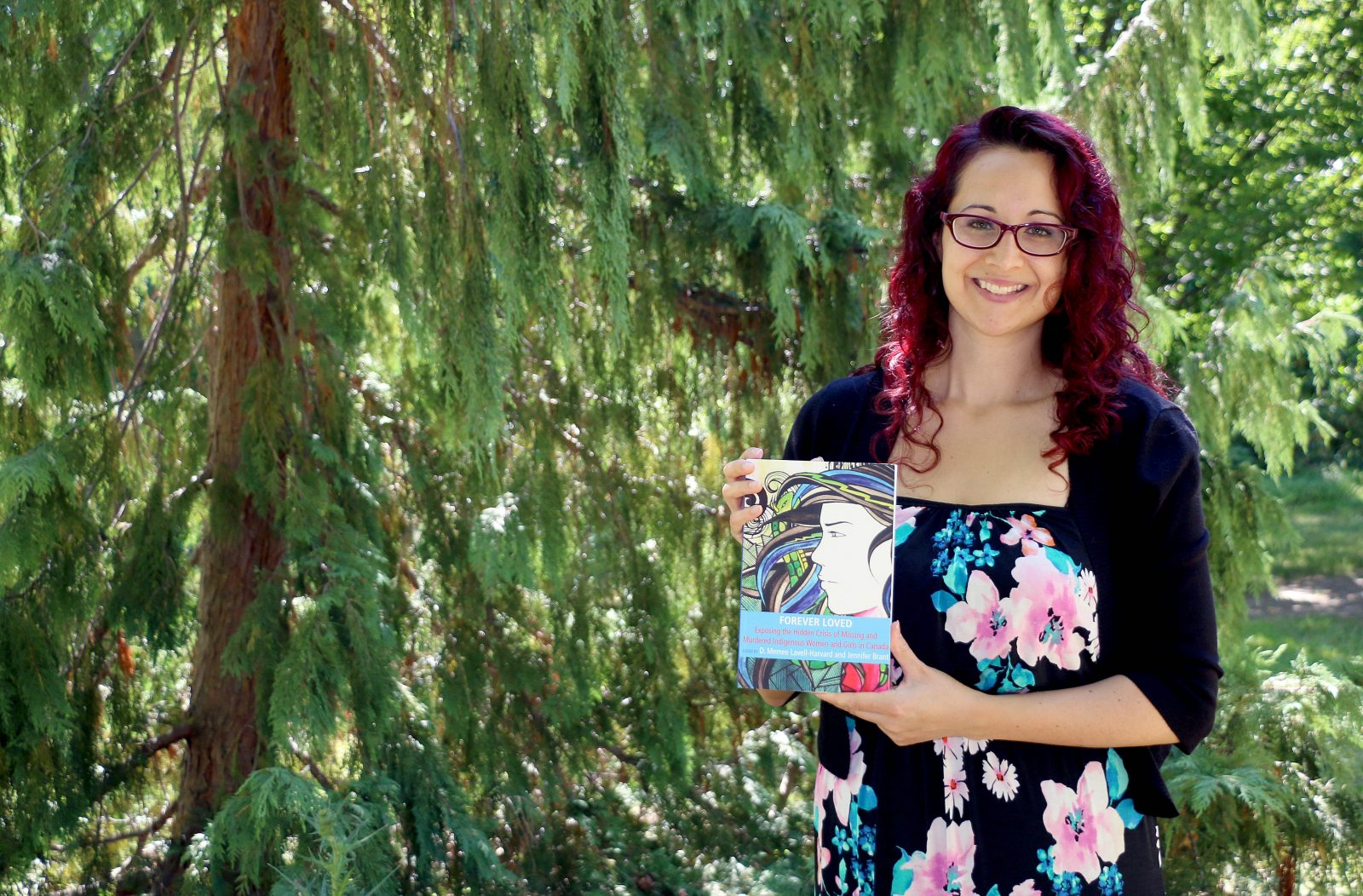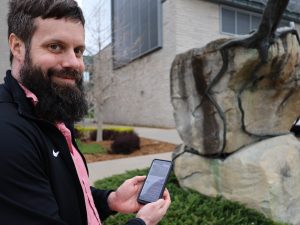 Jennifer Brant holds a copy of the book she co-edited with D. Memee Lavell-Harvard called Forever Loved: Exposing the Hidden Crisis of Missing and Murdered Indigenous Women and Girls in Canada.
Jennifer Brant holds a copy of the book she co-edited with D. Memee Lavell-Harvard called Forever Loved: Exposing the Hidden Crisis of Missing and Murdered Indigenous Women and Girls in Canada.They are mothers, daughters and sisters. They number more than 1,200. They are Canada’s missing and murdered Indigenous women and girls.
Their voices have been silenced. For decades, no one was listening.
That is finally starting to change but there is still so much work to be done to put an end to this national tragedy, says Brock University Faculty of Education PhD candidate Jennifer Brant, co-ordinator of the Gidayaamin Aboriginal Women’s Certificate Program.
There’s case after case of another missing or murdered woman.
Brant and D. Memee Lavell-Harvard, president of the Native Women’s Association of Canada, have compiled and edited a new book that shines a light on the ongoing problem.
In Forever Loved: Exposing the Hidden Crisis of Missing and Murdered Indigenous Women and Girls in Canada, a variety of voices from academia to the front-lines discuss the issue, its root causes and its terrible human toll on families, communities and the very culture of Canada’s First Nations.
“There’s case after case of another missing or murdered woman. It’s ongoing,” Brant says.
In 2004, Amnesty International released a report called Stolen Sisters, identifying a problem that, at the time, involved over 500 Indigenous women who were victims of racialized and sexualized violence. That number, according to the most recent RCMP report that notes Indigenous women are eight times more likely to die as a result of violence, climbed to 1,181 between 1980 and 2012.
Brant says Amnesty International’s initial report was the first time the crisis was brought to light for many Canadians. In subsequent years, there have been more reports from human rights organizations, First Nations organizations and governments all calling for action. But, not much has been done.
The issue has made it into the public consciousness in recent years, with media reports and political discussion largely inspired by grassroots movements. However, Brant says it isn’t enough just to know about the problem. Indigenous communities are looking for accountability and immediate action.
She says the new Liberal government under Prime Minister Justin Trudeau has responded to the call for a national public inquiry into Canada’s missing and murdered Indigenous women and girls.
The book is meant to educate and promote awareness as well as offer support. We want this to be healing and reach the hearts and homes of those affected by this issue.
It’s a start and gives advocates hope, but there is a lot of work to be done, Brant says.
Forever Loved explores everything from police and government responses to media coverage and education.
“We have a balance of academic and non-academic chapters to bring awareness to the issue and debunk the myths that dehumanize Indigenous women,” Brant says. “Like Amnesty International’s Stolen Sisters campaign, we hoped to honour the lives of missing and murdered Indigenous women and their stories as daughters, mothers, sisters and aunties.”
She says the book includes stories from the loved ones of the missing and murdered. It gives them a voice that is too often left unheard.
“The book is meant to educate and promote awareness as well as offer support,” she says. “We want this to be healing and reach the hearts and homes of those affected by this issue.”
Brant says the book exposes the hidden crisis and she hopes it promotes awareness, action, dialogue and ultimately an end to the violence so Canada can be a safe place for Indigenous women and girls.
“We are urging all Indigenous and non-Indigenous people to come together and participate in this dialogue,” she says. “We intentionally didn’t write a conclusion. We want this to start a discussion.”
Brant first heard of the issue in 2006, in class at Brock University. She was shocked that so many hundreds of Indigenous women were gone as a result of racialized and sexualized violence, and she’d never heard about it. During her time at Brock she’s worked to raise awareness and the issue features in her research into Indigenous women’s realities.
These women lived real lives, and they are not a number. They have names. They have stories. They matter.
Brant, who teaches in the Indigenous Studies program at Brock, has noticed a “distinct shift” in student awareness since the push for the national inquiry.
Jessica Riel-Johns, graduate of the Gidayaamin program, also first heard of the problem when she was a student at Brock. From that moment in class, she’s worked to try and make a difference. Her essay in the book looks at the systemic issues that perpetuate violence against this population, including political and legal discrimination and the sexualization of Indigenous women.
Riel-Johns shared her personal journey exploring her cultural roots and the reasons she is an advocate for more awareness. Her reasons are simple and powerful.
“These women lived real lives, and they are not a number,” she writes. “They have names. They have stories. They matter.”
•••
The book is available through publisher Demeter Press and at the Brock Campus Store.








